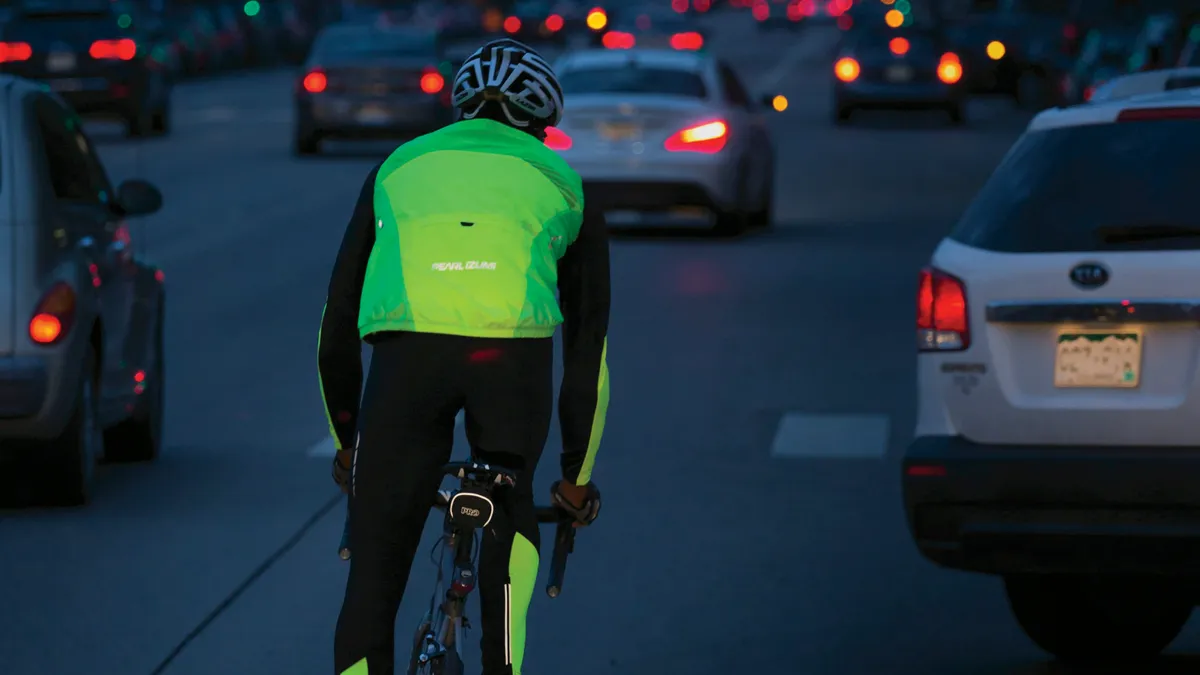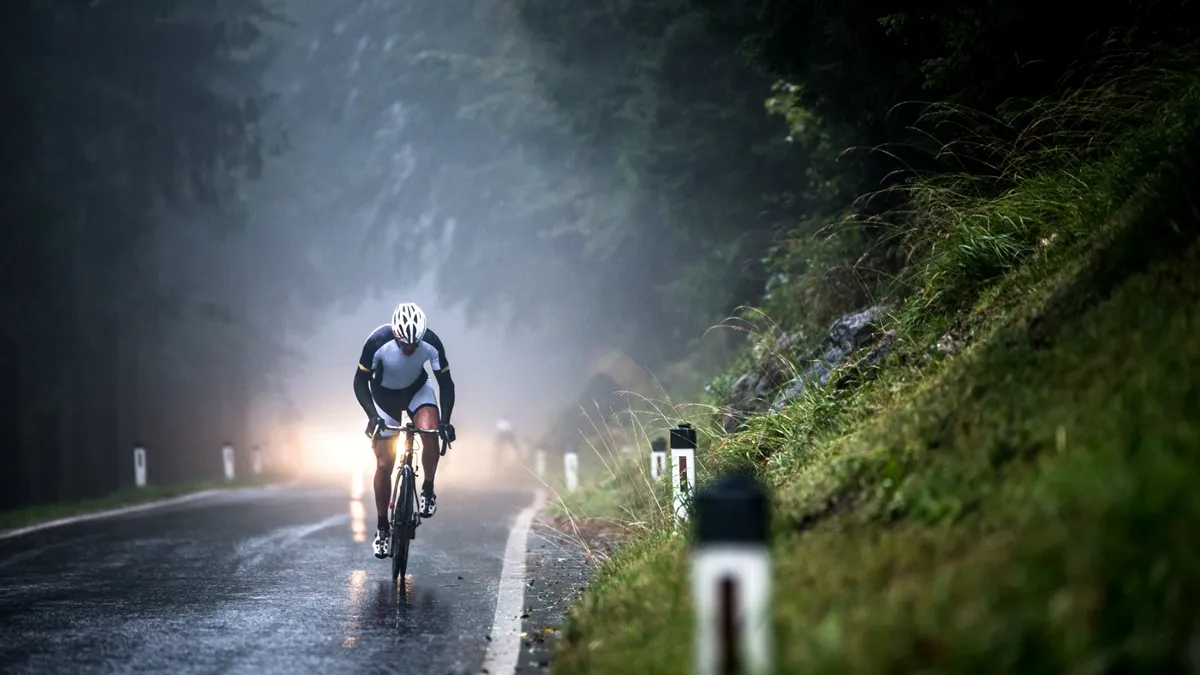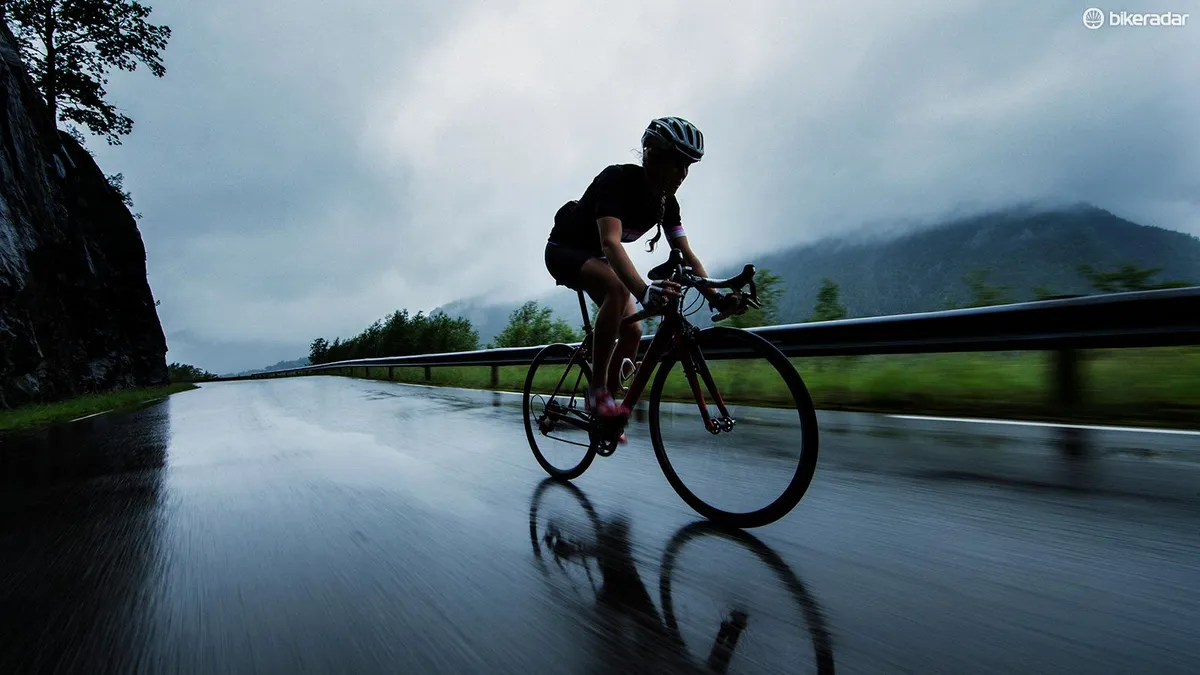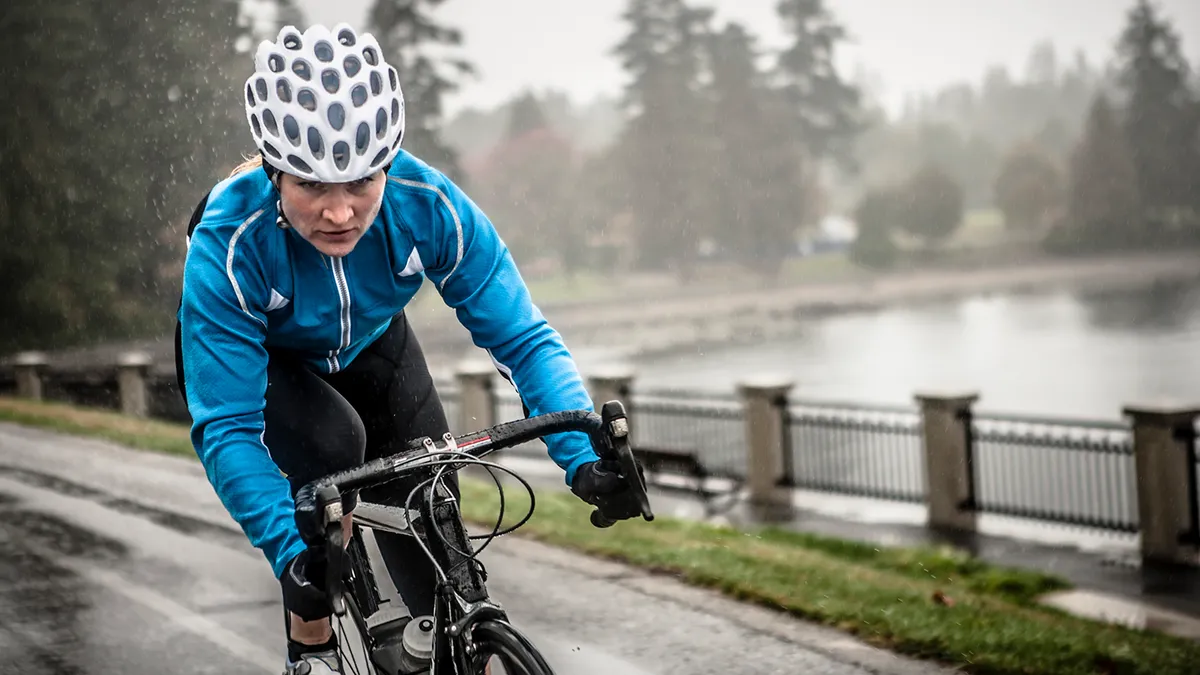Riding in the rain requires a bit of forward planning in terms of what you'll wear and a measured approach to cornering and braking. TeamGB’s Sarah Storey explains how to stay safe.
1. Wear the right clothing
If there are indoor training options I’ll often save a road ride for a dry day. If I do head out in the wet or with rain forecast I wear my hi-vis gear. Rain is a real leveller making visibility poor for both drivers and cyclists so a bright, breathable jacket is a must.

I’ll wear a cycling helmet with closed vents, or you can use a cap - one with a peak will keep rain out of your eyes. Alternatively, get some eyewear that changes according to the light conditions.
2. Anticipate loss of grip
I’m no fan of riding when there’s ice, and even slightly wet weather makes me ride slower and more warily. If there’s been a lot of rain I avoid big climbs, as these mean big descents.

Generally, it makes sense to ease back from vehicles, take wider lines at corners and change your approach to descents – just remembering that sudden hard braking will cost you your grip on the road should be enough to ensure you treat the roads with greater respect.
3. Take care in corners
Be especially aware of cornering in the rain. I know a lot of riders will go with wider tyres, wet-road tyres or just drop the pressure to get more grip mainly because of the heightened risks around corners [a recommended reduction is 15–20psi].

Start your braking earlier. This also helps your brakes clear water off the wheel rim gradually and grip better. Also, look out for painted lines and drain covers, which become much more treacherous in the rain.

